I've done a bit of reading for the day job. You probably won't care for the topic, but I find it interesting and it pays the bills, so hey.
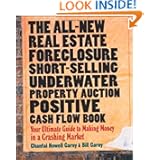 The All-New Real Estate Foreclosure Short-Selling Underwater Property Auction Positive Cash Flow Book, Chantal Howell Carey and Bill Carey, 2009
The All-New Real Estate Foreclosure Short-Selling Underwater Property Auction Positive Cash Flow Book, Chantal Howell Carey and Bill Carey, 2009
This is the print equvalent of the informercial about how to become a millionaire with no cash down. Some good information mixed in with sensational hooraw. They do work out the math for you on every example, which is nice if you get lost in the numbers. but they gloss over a lot of things, like, "The buyer defaults on the first and second mortgages. You foreclose on your second mortgage. No one outbids your opening credit bid at the foreclosure sale. You get the property back subject to the first mortgage." Yes, it's just that simple, folks!
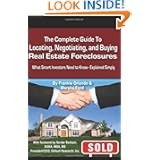 Buying Real Estate Foreclosures, Melissa S. Kollen-Rice, 2003
Buying Real Estate Foreclosures, Melissa S. Kollen-Rice, 2003
Very thorough, with a lot of focus on property management and a gzillion types of loans. This a very good book with lots of checklists, forms, examples, etc. However, a book from 2003 on this topic is only half useful. Most of the preforeclosure advice (short sales, etc.) were examples where owners had equity. These days to negotiate a short sale, you have to convince the lender to take less than the due amount of the loan. I got suckered on this one. I saw there was a 2008 third edition, clicked on it, and saw it was paperback. I clicked the link for the Kindle Version and bought it without realizing it was for the 2003 version. I'd like to see what the 2008 version says, but I'm not interested in getting a paper version to find out.
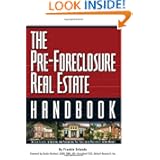 How to Buy Foreclosed Real Estate for a Fraction of its Value, Theodore J. Dallow, Don Ayer and Dick Pas, 2008
How to Buy Foreclosed Real Estate for a Fraction of its Value, Theodore J. Dallow, Don Ayer and Dick Pas, 2008
Good opening chapters on how we got to the point we were in 2008. Level-headed information and advice. This is probably the best so far, but even a book only three years old is bordering on obsolete in our current circumstances. The mechanics of process and laws haven't changed significantly, but strategies have. The recent announcement that the Obama administration is looking to shut down or phase out Fannie Mae and Freddie Mac is a good example.
 The Complete Guide to Locating, Negotiating, and Buying Real Estate Foreclosures, Frankie Orlando and Marsha Ford, 2007
The Complete Guide to Locating, Negotiating, and Buying Real Estate Foreclosures, Frankie Orlando and Marsha Ford, 2007
This wins the award for the crappiest formatting on a Kindle book I've seen to date. The table of contents is a train wreck. There are even entries out of order, chapter 10 coming after chapter 14. Despite that, there is decent content, albeit with a heavy focus on the details of renovation. The strange thing is that when you read about the authors, neither have any experience in the real estate industry. Frankie is a freelance writer whose bio talks about her husband, daughters, cats, photo albums and Taie Kwon Do belt color. Her qualification is that she has spent the last ten years watching real estate prices double in her area. Marsha is a writer, editor, trainer and entrepreneur who has written a lot of non-fiction books and done a lot of training. Evidently neither one has ever bought anything on the courthouse steps, which is kind of an important detail if you're writing a book about how to buy foreclosures.
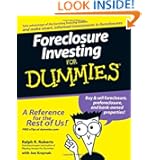 Foreclosure Investing for Dummies, Ralph R. Roberts with Joe Kraynak, 2007
Foreclosure Investing for Dummies, Ralph R. Roberts with Joe Kraynak, 2007
Even better than the Dallow book in some ways. This is the only book that made no attempt to explain the real estate market, the bubble, the crash, or to analyze what happened and why and whose fault it was. In fact, it doesn't talk about the crash at all. It simply talks about foreclosure investing. Like a typical Dummies book, it uses very simple langauge and examples and lots of repetition, but does a great job of hitting all the high points and has lots of detail and anecdotes from Roberts' multi-decade career in property managment and real estate investing. Lots of checklists and sample documents. Big emphasis on building a career on integrity and genuinely trying to help people.
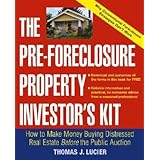 The Pre-Foreclosure Property Investor's Kit, Thomas J Lucier, 2005
The Pre-Foreclosure Property Investor's Kit, Thomas J Lucier, 2005
This book focuses on one stage of foreclosure investing, preforeclosures. This is as opposed to auction investing and postforeclosure investing. It's a good book with tons of checklists and sample letters and forms, lots of online references for additional information. Of course, given its publication date, some of those links could be dead by now.
I found the organization a little funky. He starts off with a bunch of information outside of a framework of the investing process. Then 67 pages in he goes through his 14-step soup-to-nuts process for finding, acquiring, fixing and flipping properties. If you're interested in preforeclosure investing, it's a book worth getting, despite the date.
 My Buckley source told me that Little Green Men was the best. I finally picked up a copy and found that I must respectfully disagree. Like other Buckley novels, it is zany and erudite, but I felt like I never got below the surface on any of the characters, not even the protagonist. A lot of the character reactions seemed contrived or obvious, as if Buckley was taking the easy way out, almost phoning it in.
My Buckley source told me that Little Green Men was the best. I finally picked up a copy and found that I must respectfully disagree. Like other Buckley novels, it is zany and erudite, but I felt like I never got below the surface on any of the characters, not even the protagonist. A lot of the character reactions seemed contrived or obvious, as if Buckley was taking the easy way out, almost phoning it in.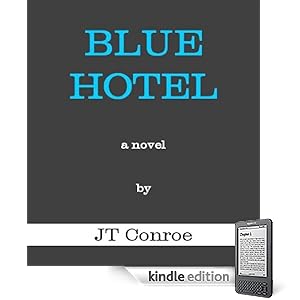 Last year, after a three-year sojourn in the wilderness of screenwriting, I returned to my homeland, the novel. I've got three works in progress and plan to release the first one, Muffin Man, in early 2012. So, for all you Fred Book fans out there who have been wanting something new from the Whittington pen, your day is coming.
Last year, after a three-year sojourn in the wilderness of screenwriting, I returned to my homeland, the novel. I've got three works in progress and plan to release the first one, Muffin Man, in early 2012. So, for all you Fred Book fans out there who have been wanting something new from the Whittington pen, your day is coming. The All-New Real Estate Foreclosure Short-Selling Underwater Property Auction Positive Cash Flow Book, Chantal Howell Carey and Bill Carey, 2009
The All-New Real Estate Foreclosure Short-Selling Underwater Property Auction Positive Cash Flow Book, Chantal Howell Carey and Bill Carey, 2009 Buying Real Estate Foreclosures, Melissa S. Kollen-Rice, 2003
Buying Real Estate Foreclosures, Melissa S. Kollen-Rice, 2003 How to Buy Foreclosed Real Estate for a Fraction of its Value, Theodore J. Dallow, Don Ayer and Dick Pas, 2008
How to Buy Foreclosed Real Estate for a Fraction of its Value, Theodore J. Dallow, Don Ayer and Dick Pas, 2008 Foreclosure Investing for Dummies, Ralph R. Roberts with Joe Kraynak, 2007
Foreclosure Investing for Dummies, Ralph R. Roberts with Joe Kraynak, 2007 The Pre-Foreclosure Property Investor's Kit, Thomas J Lucier, 2005
The Pre-Foreclosure Property Investor's Kit, Thomas J Lucier, 2005 Just seconds ago I finished reading this one. Once again, a great read by Mr. C. Down to the wire I wasn't sure which way it would go, which is saying something, given I've read 20+ Connelly novels. If you like Connelly's style of stuff, you'll like this one.
Just seconds ago I finished reading this one. Once again, a great read by Mr. C. Down to the wire I wasn't sure which way it would go, which is saying something, given I've read 20+ Connelly novels. If you like Connelly's style of stuff, you'll like this one.